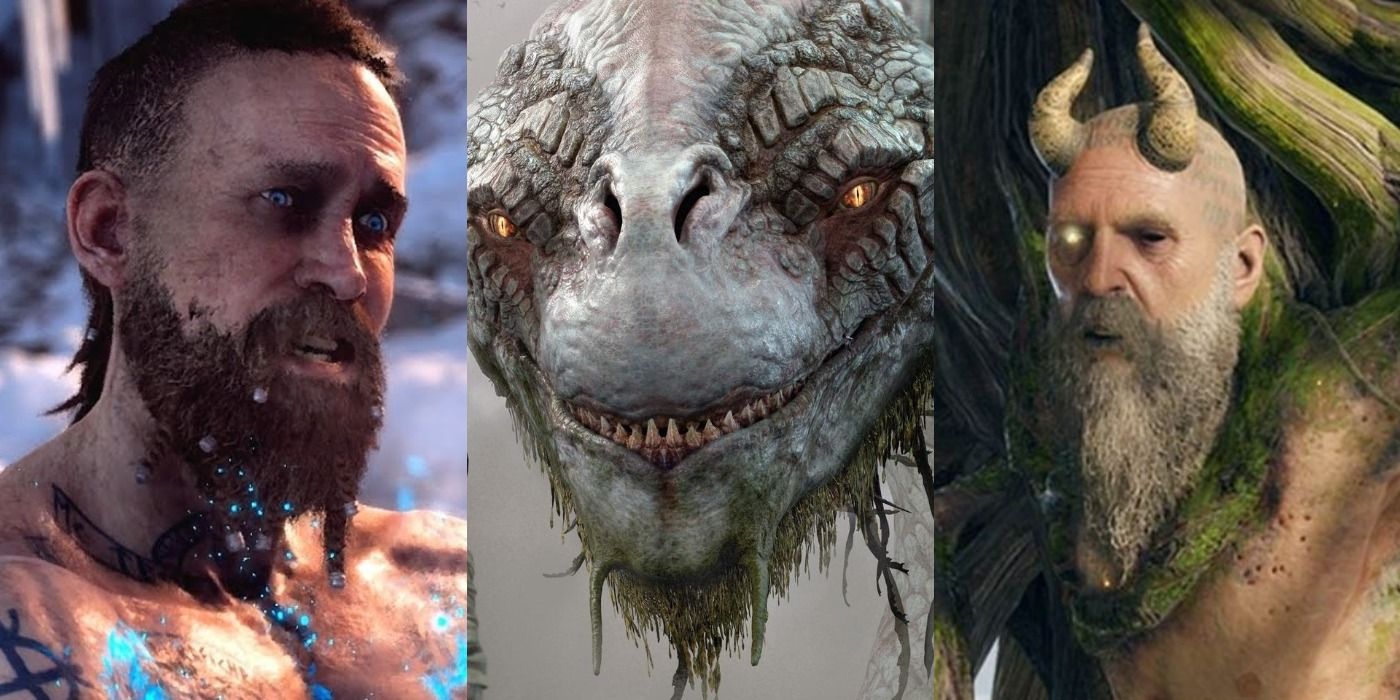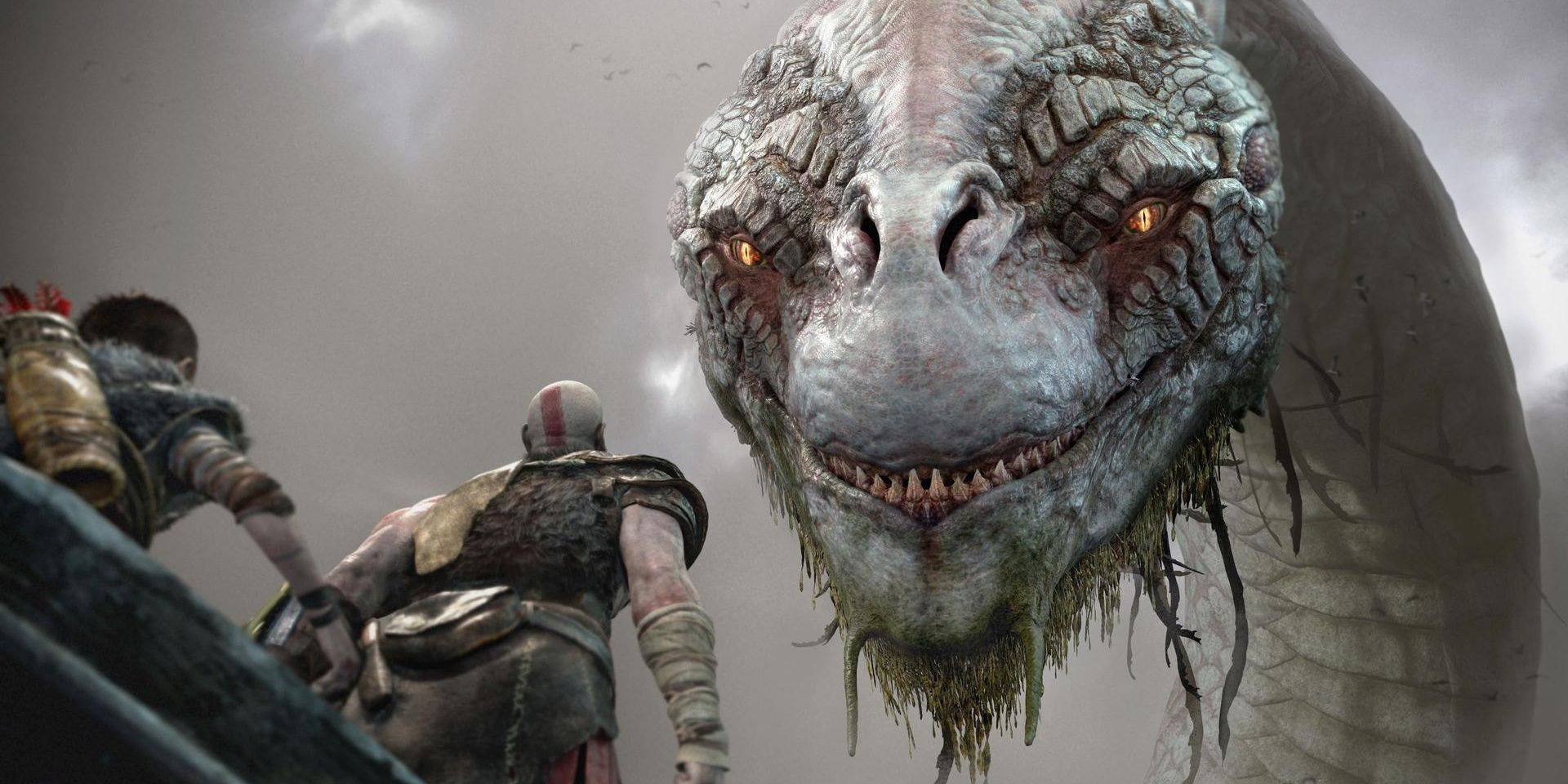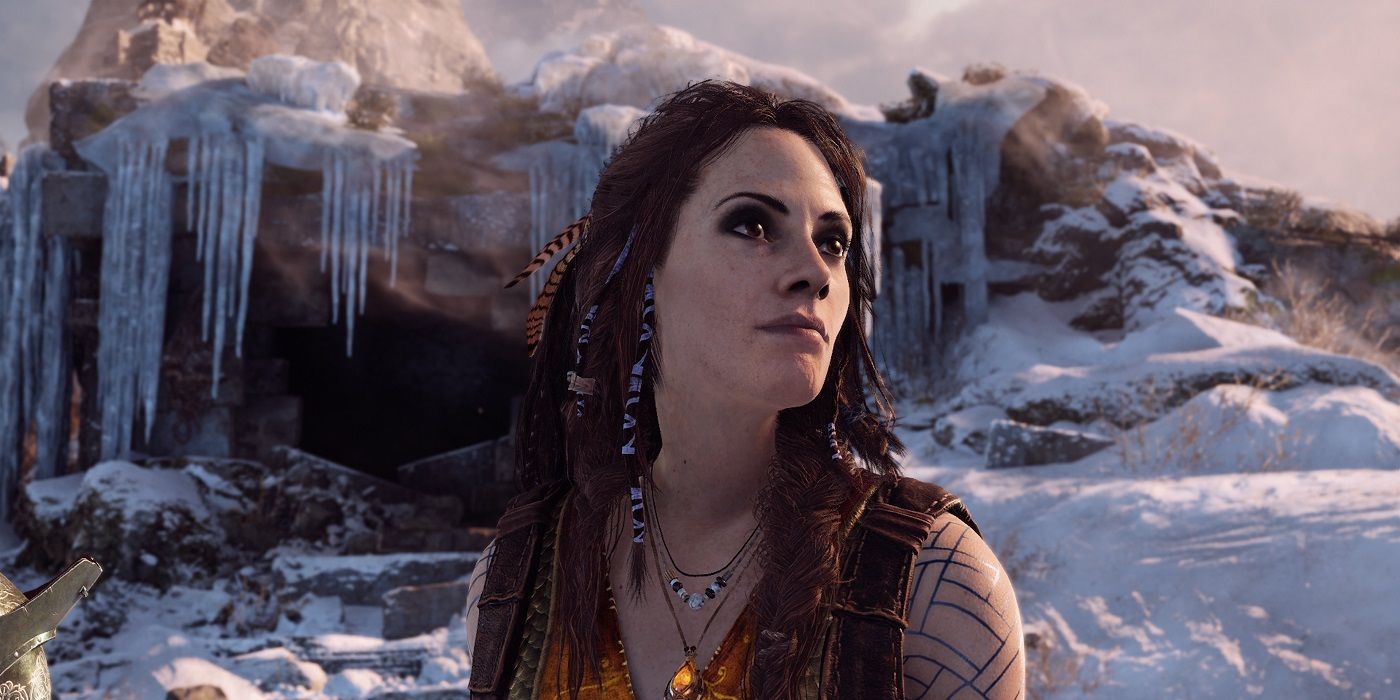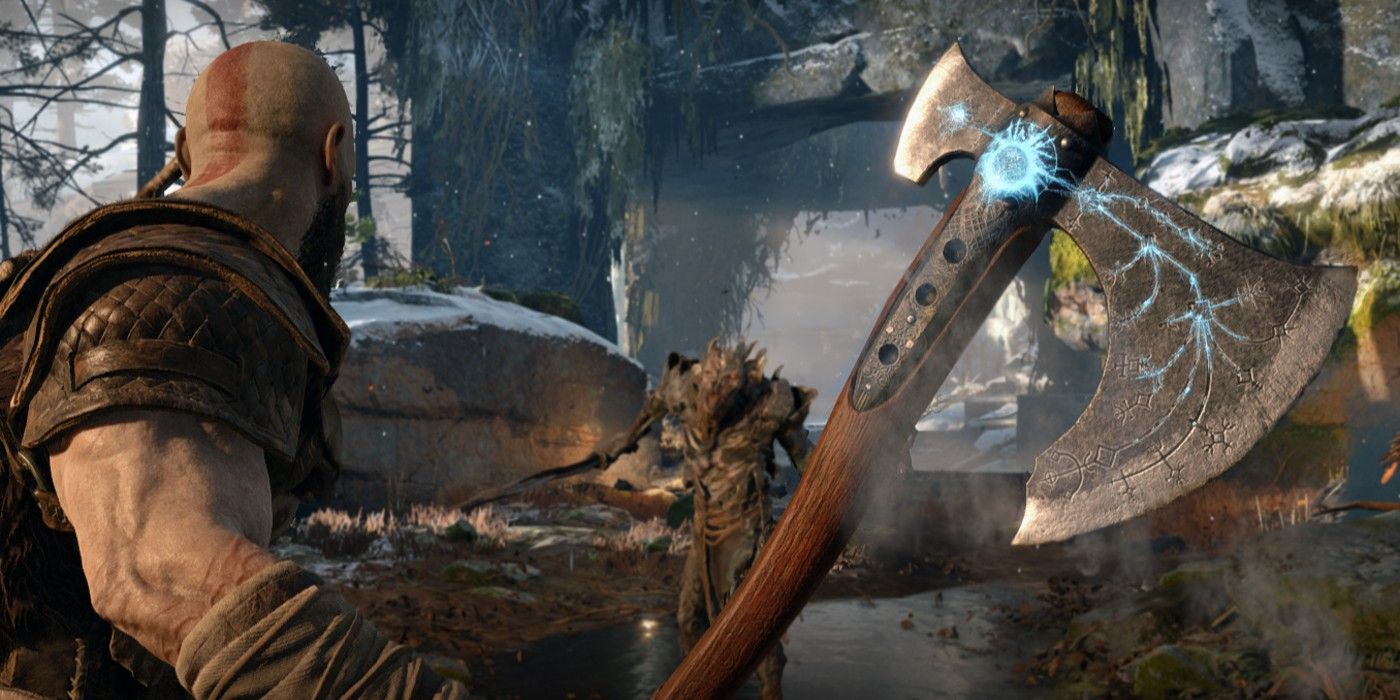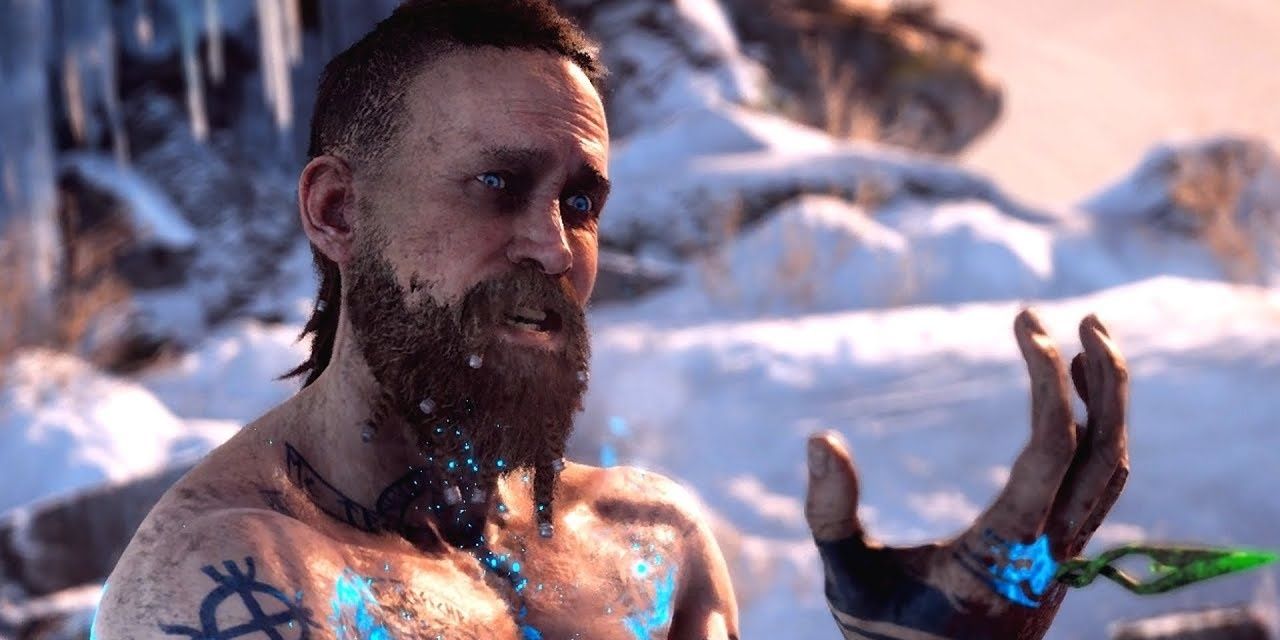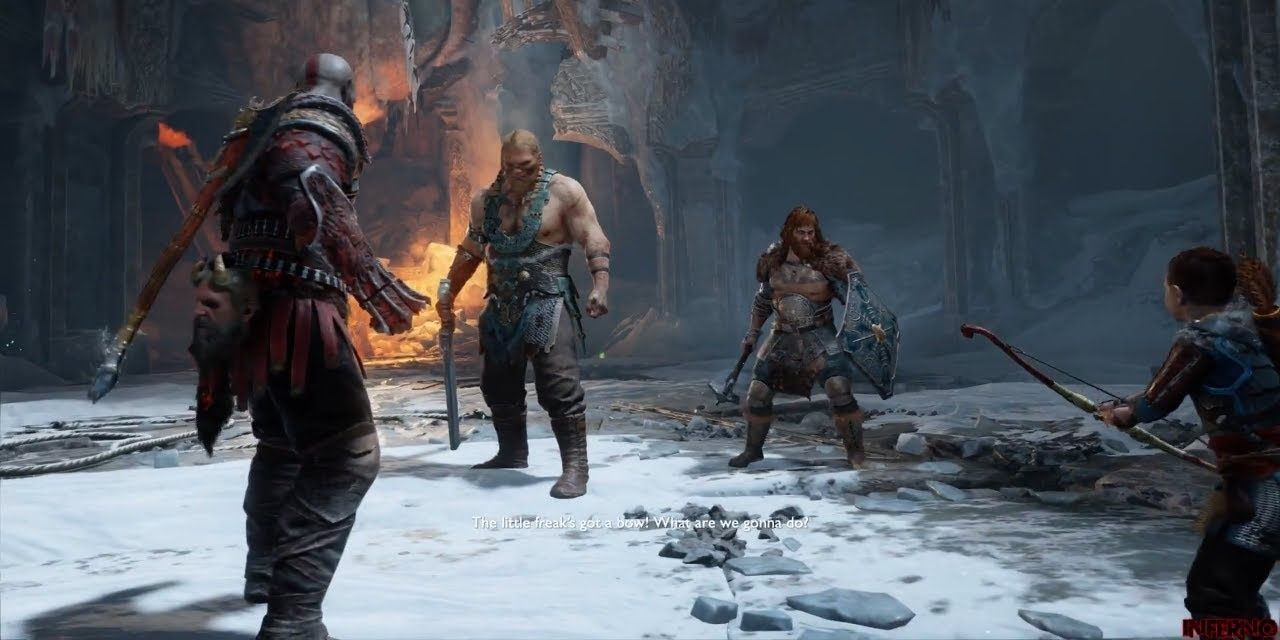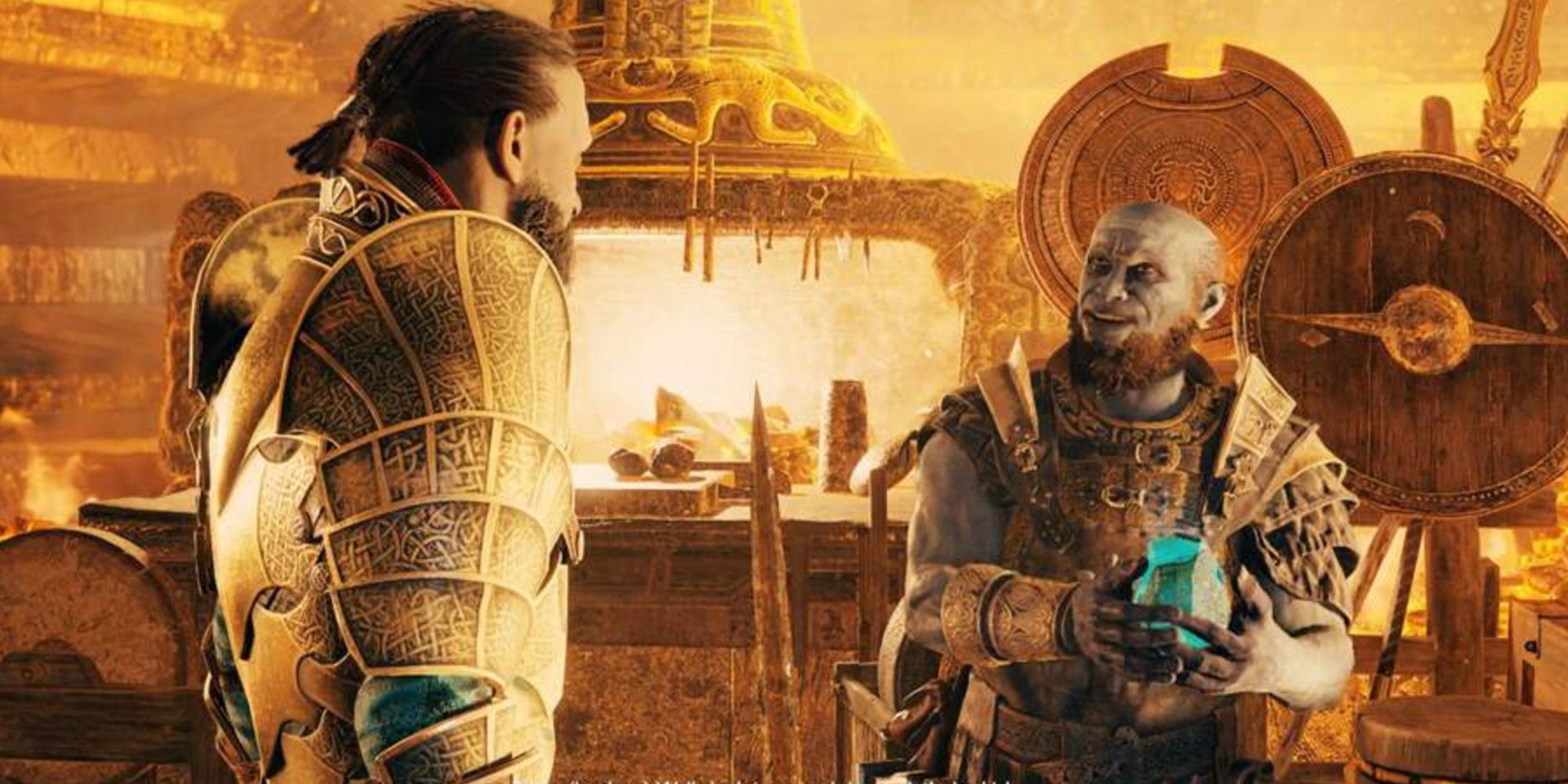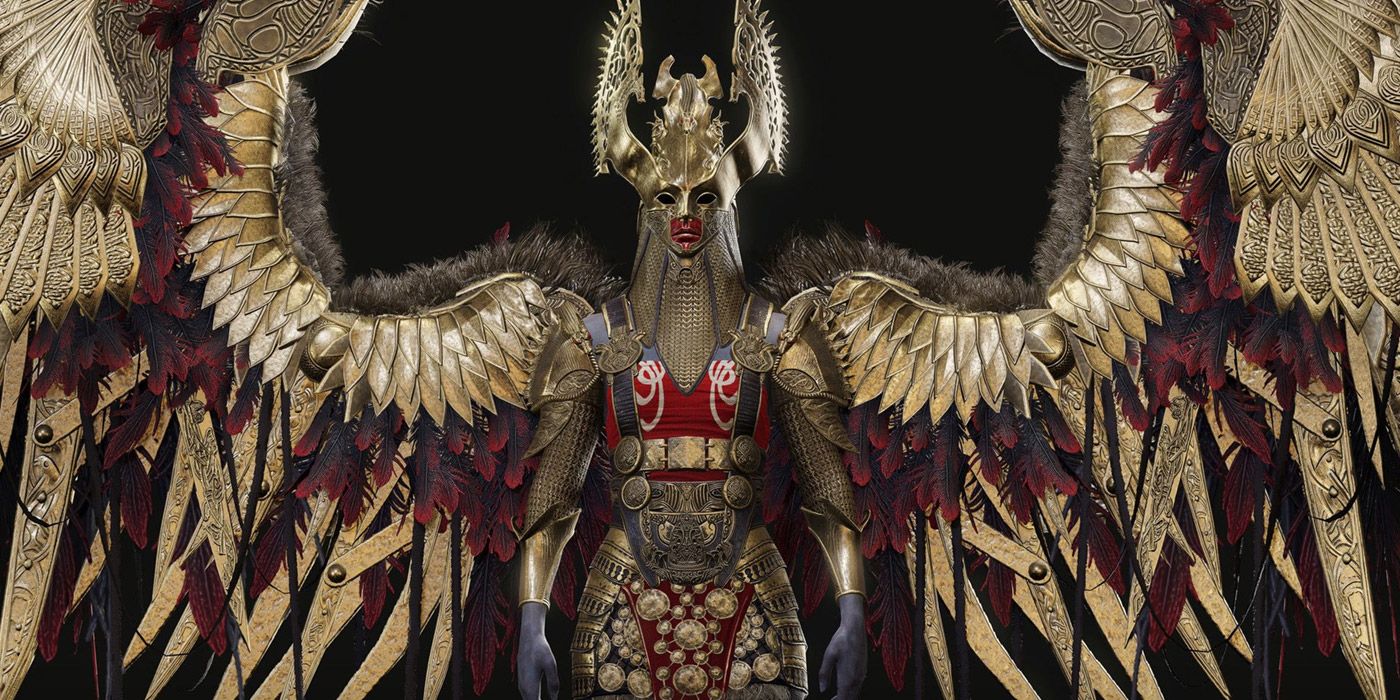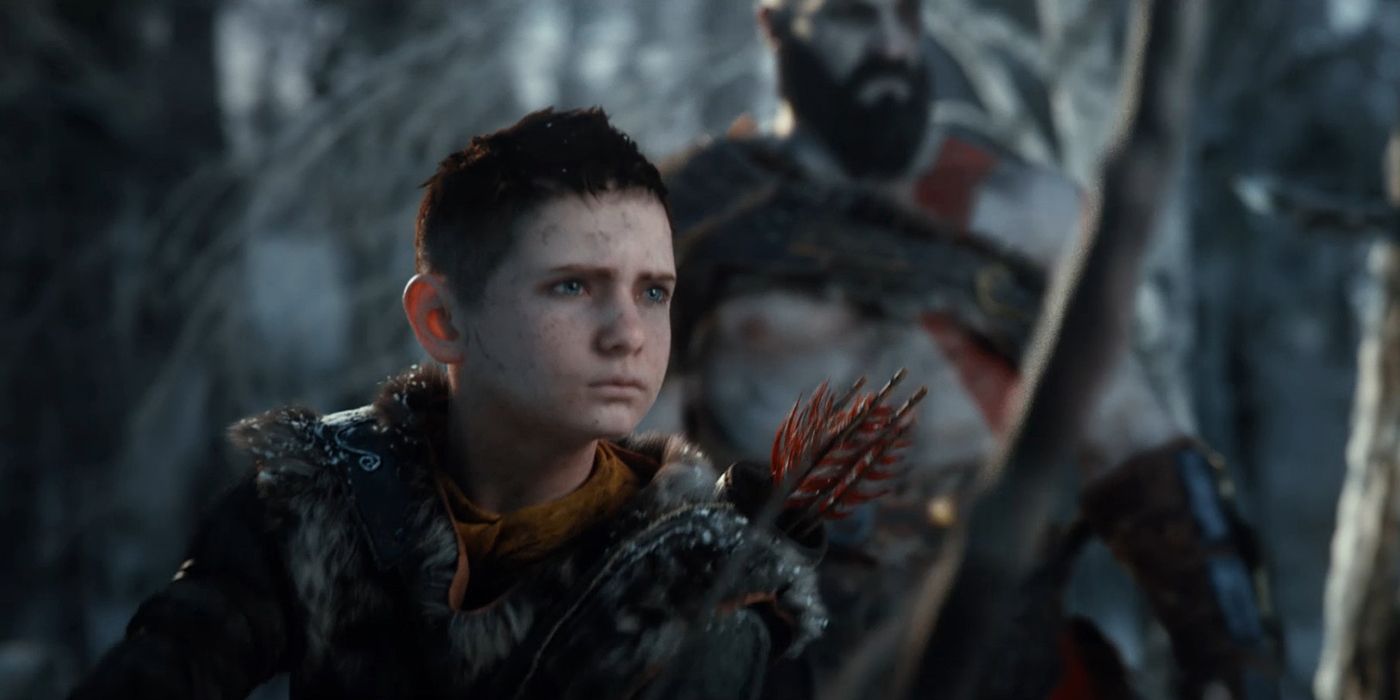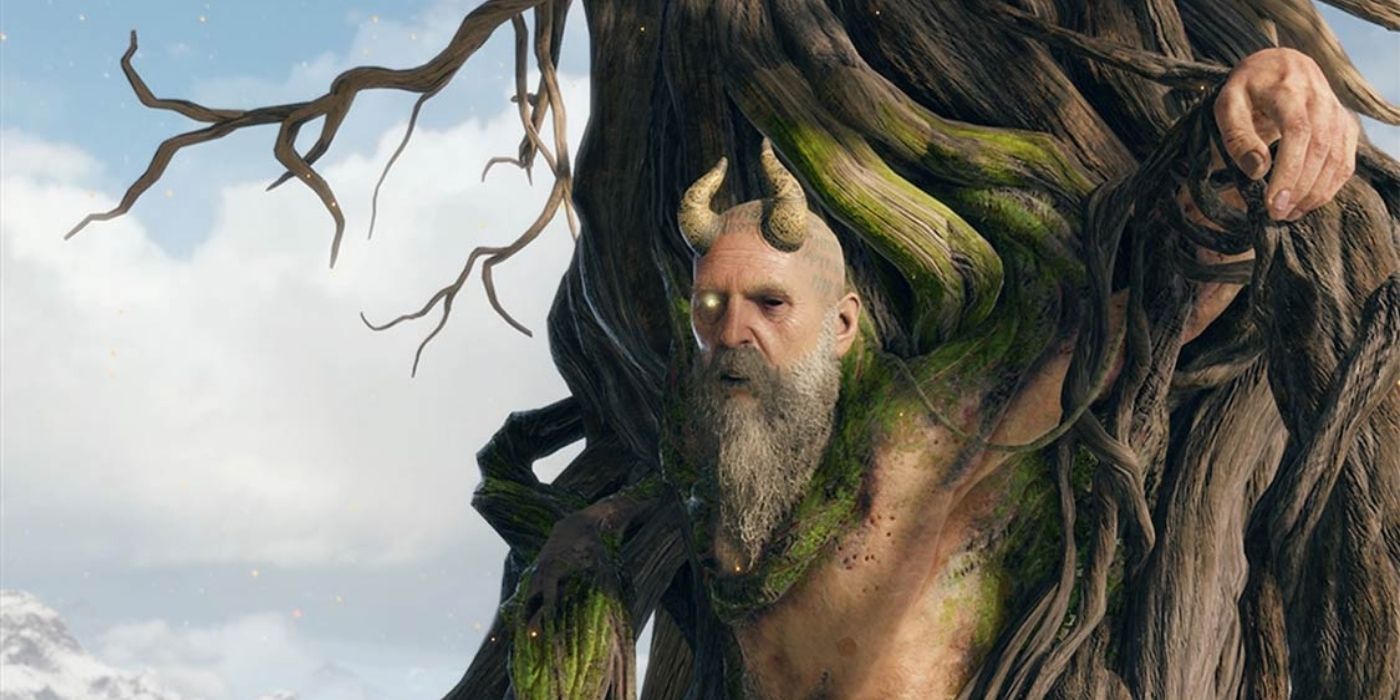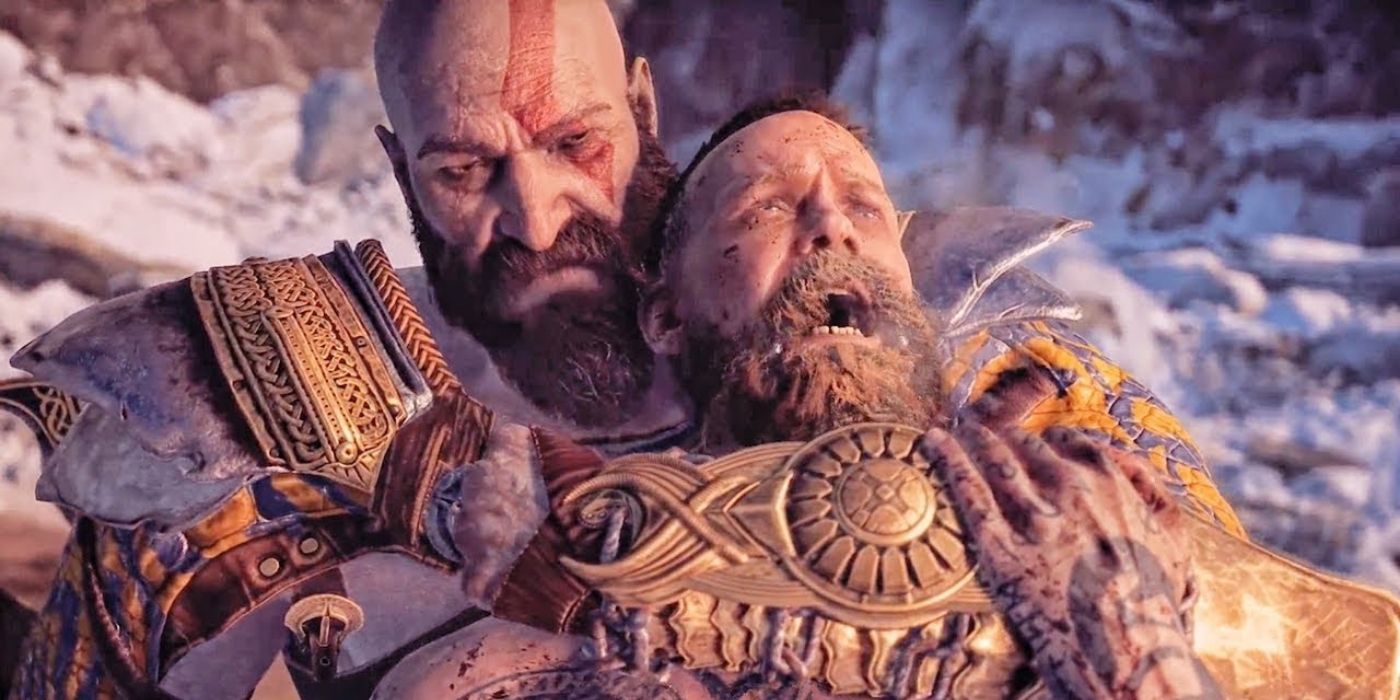The 2018 title, God of War, has been lauded for its stunning visuals, immersive gameplay, detailed open-world, and perhaps most importantly, its creative retelling of Norse mythology. The RPG changes certain aspects of popular tales about the ancient gods and their adventures to fit the game's action-packed narrative.
From Mimir’s origins to Freya’s role, there’s no shortage of major changes to mythology in God of War. As fans eagerly wait for the release of God of War Ragnarök, it’s the perfect time to look back at the story so far and examine what the differences are between the game and the mythology it’s based on.
Jormungandr’s Lineage
Deep in the Lake of Nine lies Jormungandr, The World Serpent, who isn’t as terrifying as he first seems. According to Mimir, he had such an intense fight with Thor in the future that the god of thunder’s attacks punched him through time and onto his current realm. Jormungandr is instrumental during the God of War's hard boss fight with Baldur and Freya towards the end of the game, as Atreus is able to summon him and ask for help.
In Norse Mythology, Jormungandr is actually Loki’s son. This is a clear contradiction with his role in the game because as players know, Loki and Atreus are one and the same in GoW’s universe. Unless the time travel theory is somehow true, The World Serpent’s lineage and connection with Loki remains unclear.
Freya’s Identity
Freya is one of God of War's most tragic characters as her story is inextricably linked with that of her son, Baldur. She devotes her time and energy to ensuring that he’s safe from his prophesied death, but is unable to save him from Atreus’ mistletoe arrow in the end.
The game accurately portrays Freya’s chaotic relationship with Odin, except for the fact that Freya’s character seems to be based more on Frigg than the god of love and fertility, Freyja. It’s widely believed that Freyja and Frigg may actually be the same god, which might be where GoW draws inspiration from with Freya’s storyline. Like Freya, Frigg also has a son with Odin called Baldr.
The Use Of Seiðr Magic
Seiðr magic is prominently featured in the game as a malevolent force wielded by various enemies against Kratos and Atreus. Mimir even mentions at one point that seiðr spells were used by the Vanir during their battles against the Aesir.
Stories about seiðr magic tend to be vague about the true nature of the mysterious force. One thing is clear though, it can be used for both good and evil. It’s a neutral tool that’s mostly used by women, as it was considered taboo for men to practice it.
Baldur’s Personality
In GoW, Baldur is portrayed as an arrogant and aggressive stranger who dares Kratos to hurt him the first time they meet. Fans later learn about his past with Freya, who he blames for taking away his ability to feel anything by making him invulnerable.
Baldur is based on Baldr in Norse mythology, who is known as the god of light and joy. He’s been described as a kindhearted and generous god who emanates light, which is far from his depiction in the game. Another main difference is the origin of his invulnerability. In the game, Freya learns of his future death through runes and casts a spell to protect him from all things except mistletoe. In Norse mythology, Baldr dreams of his own death, which prompts his mother, Frigg, to ask all of creation (except for mistletoe) to never hurt him.
Modi And Magdi’s Deaths
Based on what fans know about God of War Ragnarök so far, it doesn’t seem like Modi and Magni will be coming back from the grave. Their deaths are Thor’s main motivation for seeking revenge, after all. Their characters mostly served to underscore the drastic and disturbing changes in Atreus’ personality.
This isn’t something that happens in Norse mythology though, as the brothers are meant to be among the few survivors of the apocalyptic Ragnarök. They’re even supposed to inherit Thor’s powerful weapon, Mjölnir, after he’s slain in battle.
Brok And Sindri’s Competitiveness
The talented Dwarves, Brok and Sindri, are a lovable pair who have a complicated relationship in the game. Although they used to work together when crafting impressive weapons like Thor’s Mjölnir and Kratos’ Leviathan Axe, they’ve slowly drifted apart and become competitive with each other.
Brok and Sindri are inspired by the blacksmiths Brokkr and Eitri in Norse mythology. Instead of being competitive with each other, the duo faces off against the Sons of Ivaldi to win a bet against Loki. When they prove to be the better craftsmen, Loki refuses to give them his head (which he bet), so they sew his mouth shut in order to prevent him from bragging for as long as the threads will hold.
The Valkyries’ Nature
The Valkyries are some of the toughest bosses to beat in the game, with Sigrun, the Queen of the Valkyries, often considered one of the most challenging enemies in gaming history. In GoW, the fierce warriors are imprisoned in their physical bodies by Odin, which causes them to become corrupted.
Nothing like this happens in Norse mythology, as although they are also loyal servants of Odin, the Valkyries are known as magical beings who take slain warriors to Valhalla. Anyone who dares to fight a Valkyrie is burned and transformed into a mindless Draugr – a horrid creature that also appears in the game.
Loki’s Character
The biggest change GoW makes raises a lot of questions about the sequel Ragnarök. Since Atreus is revealed to be Loki, it complicates Jormungandr’s history and his relationship with Odin. Jormungandr is supposed to be Loki's son based on Norse lore, and Odin is his blood-brother.
Most fans are likely familiar with the trickster god who is said to be responsible for the beginning of the events of Ragnarök. He does somehow still cause the start of the apocalypse by unintentionally removing Baldur’s invulnerability. In Norse mythology, Loki tricks Baldr’s blind brother, Hodr, into shooting an arrow (in other tellings, a spear) covered with mistletoe to kill the god of light.
Mimir’s Origin
Mimir often boasts about being the most knowledgeable person in all the realms. He convinces Kratos to chop off his head and find Freya, who reluctantly revives him. Players later learn that Mimir used to be Odin’s faithful advisor until the Allfather imprisoned him as a result of his own paranoia.
Although Mimir is also a knowledgeable talking head in Norse mythology, the way he turns into one is quite different from how it happens in the game. Odin never drives him away and is actually upset when the Vanir decapitates him and sends back his head to the Allfather. He uses his own magic to revive him and carries his talking head around in case he needs advice.
The Beginning Of Ragnarök
Just like how it happens in Norse mythology, Ragnarök is explained to be not one single event, but a series of events that leads to the end of the world and the birth of a new one. Players have already seen the beginning of it in the game, with Atreus indirectly killing Baldur.
Aside from the fact that Hodr throws the spear that kills Baldr in mythology, the god of light’s brother, Vali, supposedly avenges him immediately after and triggers the start of the apocalyptic event. This is a character that’s not present in the game, but could still potentially play a role, or at least be alluded to, in the upcoming title, God of War Ragnarök. Another glaring difference is Kratos’ character, as he is central to the apocalyptic event as the “white ghost” in the game, but he’s not at all a key figure in the events of Ragnarök in Norse mythology.

